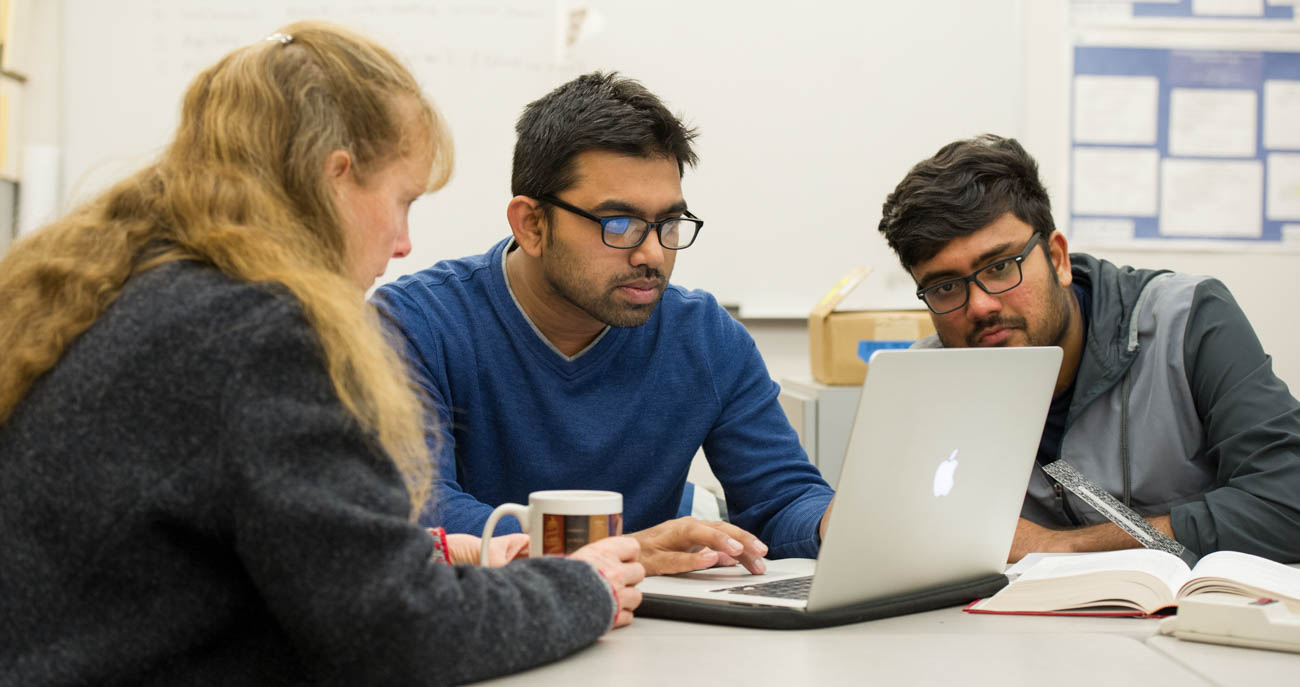
When I was in my first and second year, I was the type of student who never wanted to bother my professor. I felt like it made me a “better” student if I could just go to class, do my homework, and turn it in on time without having to bug the professor about anything. I followed the syllabus, did what was asked of me, and that was that.
Did I get good grades? Yes. Did I learn stuff? Of course. But I didn’t engage with my professor (and classmates) as much as I should have. And because of that, I kind of missed out on some connections, potential mentorship, and an overall more fulfilling classroom experience.
Let me tell you what I started doing during my last two years of college.
They can help you when you need it
I was also that student who felt like it was the end of the world if I needed to ask for help (come to think of it, that’s also a personal problem — I’m working on it). I felt like I was failing and that the teacher would be upset with me (or worse…disappointed) for asking for an exception, extension, or just letting them know what was going on in my personal life.
Every professor has their own rules about making exceptions or giving assistance in unusual situations. But, there’s no harm in just having a conversation.
But I will say, in my later college years, if I had a work conflict, a personal issue, or was just super overwhelmed and was honest with my professor about that, they were always understanding. 100% of the time. I thought to myself, “What was I so afraid of?” Students are out here doing their best and sometimes stuff gets in the way. Professors are also people (crazy, right?) and they were once in your shoes. They know how hard it is sometimes. So, if you’re stressing, just reach out. The worst that can happen is they’ll say no.
They can help you with professional connections
What’s one of the hardest things about finding new opportunities? Meeting the right people. At least that’s what I think. When I was studying creative writing, it often felt like I was waiting for a person or job or opportunity to fall into my lap, which isn’t super effective, let me tell you.
So, if you’re interested in getting a job, internship, volunteer opportunity, or just finding like-minded people within a certain field of study, talk to your professor who teaches that subject. It’s very likely that they can introduce you to someone else in the class, another mentor, employer, etc. who can help you get what you’re looking for.
Once I started reaching out to my classmates and professors and telling them what my goals were, they started introducing me to more people and those connections turned into internships, jobs, and friendships too! Which is just as important as all that professional mumbo-jumbo.
They can be a mentor to you
Obviously not every professor is going to have the time to be able to take on a mentee, but some of them will. Learning how to navigate the professional world, in itself, is really hard to do alone. But more than that, you might be able to get some extra one-on-one time with someone who has made a career out of whatever that thing is you want to do. They for sure have some precious expertise they could send your way.
That might look like advice on which professional skills to develop, which particular career path to take, which kind of professional connections to make, what will actually look good on your resume, and so much more.
When I started studying writing I was certain that the only career that could make me happy was being a novelist. I was never more sure of anything in my life. I wanted to dedicate my life to creative writing and nothing else. Fast forward four years and I was like, “Yeah, absolutely not. No way.” The stress of making a career out of writing novels, then actually spending YEARS writing one, then crossing my fingers that it would do well so I could keep on writing them — not for me.
I learned a lot about myself by learning from the careers and journeys of my mentors. I learned that I need more structure in my career, I am motivated by small, consistent milestones, and there’s so many other ways that I can make creative writing my job without just being a novelist. Bringing in those outside opinions can really expand your professional view.
Broncos, it might seem like it’s your job to go to class, do the work, and get out with the grade, but actually it’s your job to enjoy school and get what you want out of it, and professors are literally here to help you be successful. So, why not just try and see what happens.
Author
-

Trisha